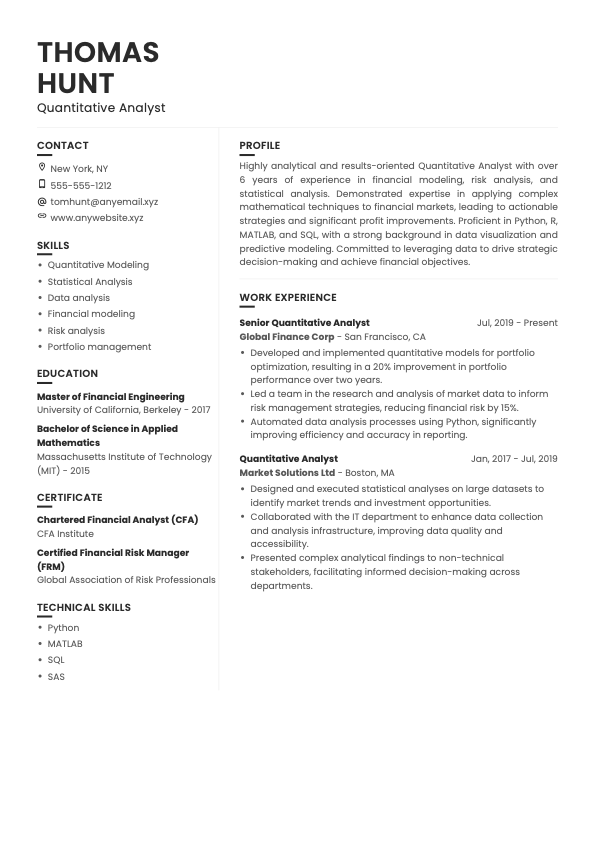
Over the next decade, the quantitative analyst role is predicted to be one of the most sought-after skills. Here’s what to include in your resume and how to emphasize your skills and accomplishments to draw the attention of potential employers as a Quantitative Analyst.

"Detail-oriented Quantitative Analyst with over 5 years of experience specializing in predictive modeling, data processing, and advanced analytics. Proficient in converting business challenges into actionable data-driven insights to foster growth and operational efficiency. Proven success in delivering robust analyses leading to substantial strides in customer satisfaction and revenue growth."
Tips for Writing a Strong Resume Summary
Keep it brief: Aim for 3-4 sentences, ideally between 50 – 100 words.
Focus on your most relevant experiences and achievements.
Incorporate keywords from the job description to align with the employer’s expectations.
- Developed predictive models that boosted marketing ROI by 20% through targeted customer segmentation.
- Utilized machine learning algorithms to improve inventory management, reducing waste by 30%.
- Led a data integration project that enhanced data quality and accessibility, boosting team productivity by 40%.
Best Practices for Experience Section
Use reverse chronological order, starting with your most recent role.
Include company names, job titles, and dates of employment.
Emphasize accomplishments that align with the job responsibilities.
Technical Skills
Soft Skills
Tips for Skills Section
Use bullet points for clarity and readability.
Tailor your skills to match the job description.
Prioritize the most relevant skills for this role
Tips for Including Courses and Certifications
Creating a professional resume doesn’t have to be daunting. With the right guidance and tools, you can craft a resume that captures your strengths and impresses hiring managers. Use the Careerpilot resume builder and explore our suggested resume templates to get started. With our intuitive platform, you’ll have a polished and customized resume in no time. Start building your resume today and take the first step toward your next career opportunity!
We use cookies to enhance your experience. By continuing to visit this site, you agree to our use of cookies. Not consenting or withdrawing consent, may adversely affect certain features and functions.